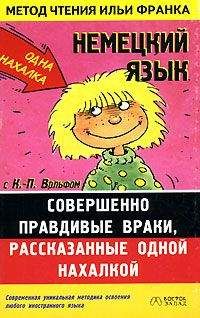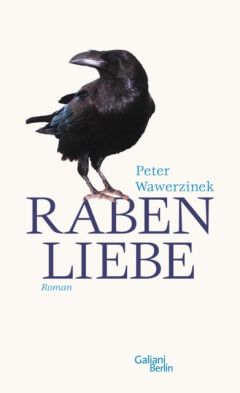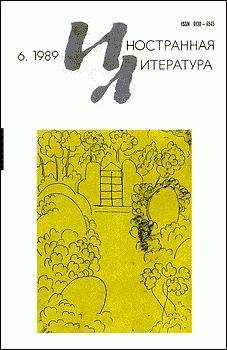Уильям Моэм - Английский язык с У. С. Моэмом. На окраине империи. Рассказы
"How can I ever thank you for what you've done for me (как я смогу отблагодарить тебя за то, что ты для меня сделал)?" she said. "You've done me a great service (ты оказал мне огромную услугу). I knew I could trust you (я знала, что могу доверять тебе)."
He took her hand and held it (он взял ее руку и удержал ее). She had never looked more beautiful (она никогда не выглядела более красивой).
"Oh, Isabel, I would do so much more for you than that (о, Изабелла, я бы сделал для тебя гораздо больше /чем это/). You know that I only ask to be allowed to love and serve you (ты же знаешь, что все, чего я прошу — что бы ты позволила мне любить тебя и служить тебе)."
"You're so strong, Bateman (ты такой сильный, Бейтман)," she sighed (вздохнула она). "It gives me such a delicious feeling of confidence (это дает мне такое восхитительное чувство уверенности; confidence— доверие; уверенность)."
"Isabel, I adore you (Изабелла, я обожаю тебя)."
breathe [bri: D], wonderful ['wAndqf(q)l], sigh [saI], delicious [dI'lISqs]
She slipped the ring off her finger and placed it on the table. Bateman watched her with a heart beating so rapidly that he could hardly breathe.
"You're wonderful, Isabel, you're simply wonderful."
She smiled, and standing up, held out her hand to him.
"How can I ever thank you for what you've done for me?" she said. "You've done me a great service. I knew I could trust you."
He took her hand and held it. She had never looked more beautiful.
"Oh, Isabel, I would do so much more for you than that. You know that I only ask to be allowed to love and serve you."
"You're so strong, Bateman," she sighed. "It gives me such a delicious feeling of confidence."
"Isabel, I adore you."
He hardly knew how the inspiration had come to him (он едва мог понять, как к нему пришло вдохновение), but suddenly he clasped her in his arms (но внезапно он заключил ее в свои объятия; to clasp — застегивать/на пряжку/;пожимать, обнимать), and she, all unresisting, smiled into his eyes (и она, совершенно не сопротивляясь, улыбнулась, /глядя/ ему в глаза).
"Isabel, you know I wanted to marry you the very first day I saw you (Изабелла, ты знаешь, что я хотел жениться на тебе с того самого первого дня, когда я увидел тебя)," he cried passionately (страстно воскликнул он).
"Then why on earth didn't you ask me (тогда почему же ты не предложил мне)?" she replied (ответила она).
She loved him (она любила его). He could hardly believe it was true (он едва мог поверить, что это правда). She gave him her lovely lips to kiss (она подставила ему для поцелуя свои прекрасные губы).
inspiration ["InspI'reIS(q)n], clasp [klQ: sp], unresisting ["AnrI'zIstIN]
He hardly knew how the inspiration had come to him, but suddenly he clasped her in his arms, and she, all unresisting, smiled into his eyes.
"Isabel, you know I wanted to marry you the very first day I saw you," he cried passionately.
"Then why on earth didn't you ask me?" she replied.
She loved him. He could hardly believe it was true. She gave him her lovely lips to kiss.
And as he held her in his arms (и пока он держал ее в своих объятиях) he had a vision of the works of the Hunter Motor Traction and Automobile Company growing in size and importance (он представил картину, как заводы "Компании Хантеров по производству тяговых электродвигателей и автомобилей" растут в размерах и важности/влиятельности) till they covered a hundred acres (пока они не займут площади в сотни акров), and of the millions of motors they would turn put (и /представил картины/ миллионов автомобилей, которых они выпустят), and of the great collection of pictures he would form (и о великой коллекции картин, которую он соберет) which should beat anything they had in New York (и которая превзойдет любую /коллекцию/ в Нью-Йорке; to beat — бить, ударять; побить, победить, разг. превосходить, быть лучше). He would wear horn spectacles (он будет носить очки в роговой оправе).
traction ['trxkS(q)n], importance [Im'pO: t(q)ns], acre ['eIkq], spectacles ['spektqk(q)lz]
And as he held her in his arms he had a vision of the works of the Hunter Motor Traction and Automobile Company growing in size and importance till they covered a hundred acres, and of the millions of motors they would turn put, and of the great collection of pictures he would form which should beat anything they had in New York. He would wear horn spectacles.
And she, with the delicious pressure of his arms about her, sighed with happiness (а она, /чувствуя/ его приятное объятие: «восхитительное давление его рук вокруг себя», вздохнула от счастья), for she thought of the exquisite house she would have (потому как она подумала об изысканном доме, что у нее будет), full of antique furniture (заполненном антикварной мебелью; antique — древний, старинный; антикварный), and of the concerts she would give (и о концертах, которые она будет устраивать), and of the thйs dansants (и о танцевальных вечерах: фр. «чаях с танцами»), — and the dinners to which only the most cultured people would come (и об обедах, на которые будут приходить только самые образованные/видные люди). Bateman should wear horn spectacles (а Бейтману следует носить очки в роговой оправе).
"Poor Edward (бедный Эдвард)," she sighed (вздохнула она).
delicious [dI'lISqs], pressure ['preSq], exquisite [Ik'skwIzIt, 'ekskwIzIt], antique [xn'ti: k], furniture ['fWnItSq]
And she, with the delicious pressure of his arms about her, sighed with happiness, for she thought of the exquisite house she would have, full of antique furniture, and of the concerts she would give, and of the thйs dansants, — and the dinners to which only the most cultured people would come. Bateman should wear horn spectacles.
"Poor Edward," she sighed.
The Outstation
(На окраине империи: «отдаленная стоянка/резиденция»)
The new assistant arrived in the afternoon (новый помощник прибыл после полудня/во второй половине дня). When the Resident, Mr. Warburton, was told that the prahu was in sight he put on his solar topee (когда резиденту, мистеру Уорбертону, сообщили, что прау появилась в поле зрения, он надел свой солнечный шлем = шлем против солнца; prahu— прау, легкая малайская лодка /с острыми приподнятыми носом и кормой, что делает возможным движение в обе стороны/;topee=topi— тропический шлем /от солнца/) and went down to the landing-stage (и пошел = побрел/направился к пристани). The guard, eight little Dyak soldiers (караул, восемь маленьких = невысоких солдат-даяков /туземцы острова Борнео/), stood to attention as he passed (стояли в положении «смирно», когда он проходил /мимо/; to stand at attention— стоять в положении «смирно»;attention— внимание;Dyak— даяк, местный житель Борнео). He noted with satisfaction that their bearing was martial (он отметил с удовлетворением, что их поведение было военным), their uniforms neat and clean (их униформы были чисты и опрятны), and their guns shining (а их оружие — сияющим/блестящим). They were a credit to him (они были его гордостью: «были честью/гордостью ему»). From the landing-stage he watched the bend of the river (с пристани он наблюдал за изгибом/поворотом реки) round which in a moment the boat would sweep (из-за: «вокруг» которого через мгновение должна была выскочить лодка; to sweep— мести; нестись, мчаться). He looked very smart in his spotless ducks and white shoes (он выглядел очень опрятно/аккуратно в своих безукоризненно чистых: «без единого пятна» парусиновых брюках и белых ботинках;ducks— парусиновые брюки; spotless — без единого пятнышка, чистый). He held under his arm a gold-headed Malacca cane (он держал под своей рукой златоглавую трость = под мышкой у него была трость с золотым набалдашником;Malacca/cane/ — пятнистая трость /из пальмы-ротанга/) which had been given him by the Sultan of Perak (которая была подарена =подаренная ему султаном Перака). He awaited the newcomer with mingled feelings (он ожидал новичка/приезжего со смешанным чувством).
Resident [`rezIdqnt], topee [`tqupi: ], boat [bqut], Malacca cane [mq'lxkq keIn], mingle [mINgl]
The new assistant arrived in the afternoon. When the Resident, Mr. Warburton, was told that the prahu was in sight he put on his solar topee and went down to the landing-stage. The guard, eight little Dyak soldiers, stood to attention as he passed. He noted with satisfaction that their bearing was martial, their uniforms neat and clean, and their guns shining. They were a credit to him. From the landing-stage he watched the bend of the river round which in a moment the boat would sweep. He looked very smart in his spotless ducks and white shoes. He held under his arm a gold-headed Malacca cane which had been given him by the Sultan of Perak. He awaited the newcomer with mingled feelings.
There was more work in the district (в округе было больше работы; district— район; округ) than one man could properly do (чем мог справиться один человек: «один человек мог должным образом выполнять»), and during his periodical tours of the country under his charge (и во время его периодических поездок по территории/местности, которая была в его попечении; country— страна; территория, местность;charge— заведование; руководство; ответственность; забота, попечение, надзор) it had been inconvenient to leave the station in the hands of a native clerk (было неудобно оставлять станцию в руках местного служащего/служащего-туземца; convenient— удобный, подходящий), but he had been so long the only white man there (но он так долго был там единственным белым человеком) that he could not face the arrival of another without misgiving (что не мог воспринимать приезд другого /белого/ без опасения; misgiving— предчувствие дурного; опасение;to face— стоять лицом к /чему-либо/;сталкиваться лицом к лицу /с чем-либо/). He was accustomed to loneliness (он привык: «был привычен» к одиночеству;to accustom— приучать; делать знакомым, привычным). During the war he had not seen an English face for three years (во время войны он не видел английского лица = ни одного англичанина на протяжении трех лет); and once when he was instructed to put up an afforestation officer (и однажды, когда ему поручили принять чиновника/специалиста по лесонасаждению; to put up— передать, поднимать; принимать;afforestation— облесение; лесонасаждение) he was seized with panic (он был охвачен паникой = его охватила паника), so that when the stranger was due to arrive (потому, когда незнакомец должен был прибыть), having arranged everything for his reception (подготовив все к его приезду: «приему»), he wrote a note telling him he was obliged to go up-river, and fled (он написал = оставил записку, сообщая/объясняя ему, /что/ он вынужден уехать к верховью реки, и сбежал; to flee— исчезать, спасаться бегством; убегать); he remained away till he was informed by a messenger that his guest had left (он оставался там = прятался, пока посыльный не известил его, что гость уехал).



